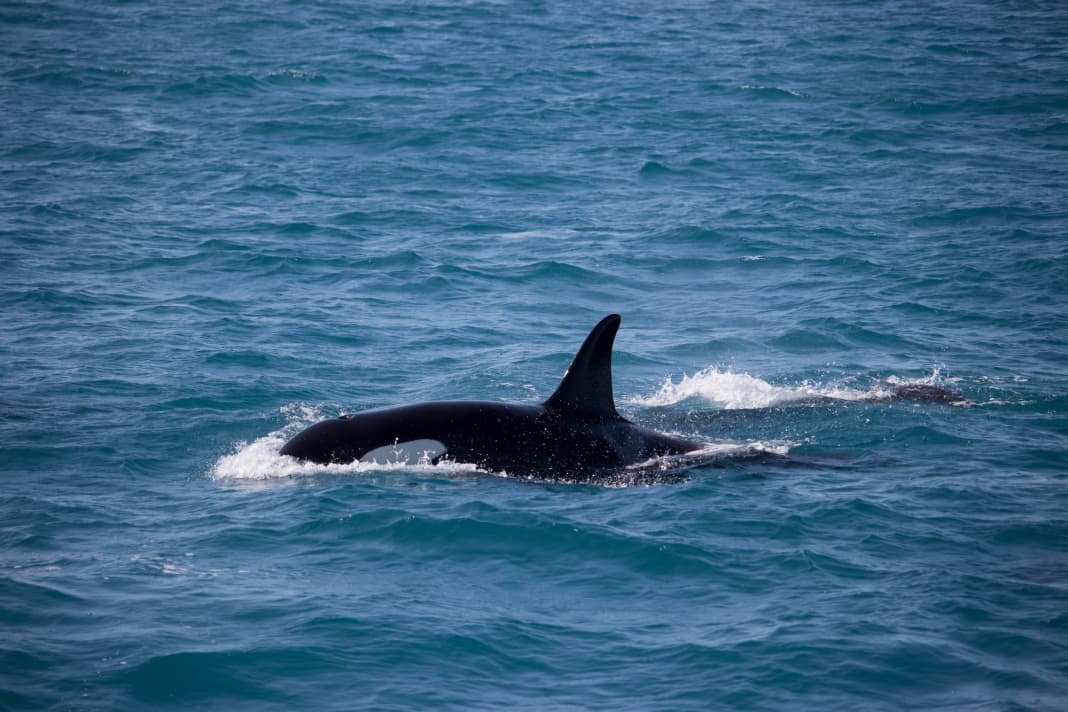





Several months have passed since we last reported on a Orca attack with serious consequences have reported. The problematic group, which is active around the Strait of Gibraltar, seemed to have calmed down. Now, however, there has been another orca interaction - a Jeanneau Sun Odyssey 449 launched in 2017 has sunk.
The 13.74 metre charter yacht from the Polish operator "Morskie Mile" had previously been attacked by a group of orcas for 45 minutes. As usual, the killer whales struck the steering gear, but not only caused considerable damage to it, but also caused a leak. Despite all the measures taken by the skipper and crew as well as the sea rescuers, tugs and the Moroccan navy, the severely damaged yacht sank before entering the harbour of Tangier Med, according to a statement from the global charter company.
Critical interactions have been occurring with the Iberian subpopulation for several years. For reasons that are as yet unexplained, the orcas have repeatedly damaged the rudder blades of sailing yachts under 20 metres in length in particular since 2020. Many yachts have been damaged as a result of such interactions, and several have already sunk.
Orca attack or interaction?
The killer whales, which are considered to be very intelligent, can communicate with and learn from each other. So far, however, only this one orca group has been noticed as dangerous, and researchers do not expect this behaviour to spread to the dozens of populations worldwide. "It is very unlikely that this behaviour of 'rough play' with boats can be transferred over long distances," says Mark Simmonds, scientific director of the Marine conservation organisation "OceanCare". He can therefore give the all-clear: "Outside the area where the known Iberian subpopulation lives, there is no general danger from orcas for shipping."
Furthermore, the scientists do not assume that the killer whales are actually attacking. In a study published in August open letter 80 experts express their concern that the animals' behaviour is often incorrectly portrayed as aggressive and as revenge against humans. This humanisation of animal behaviour is irresponsible and could encourage violence towards orcas. OceanCare also takes a critical view of this, particularly because the subpopulation in question on the Red List of Threatened Species is classified as "critically endangered".
However, the same letter also mentions that science cannot yet explain why the interactions occur and how sailors, among others, should act instead. The methods recommended so far have not always been able to achieve the desired effect:
